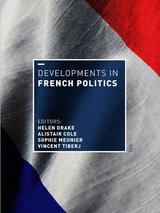M

Abstract
The EU is a formidable power in trade. Structurally, the sheer size of its market and its more than forty-year experience of negotiating international trade agreements have made it the most powerful trading bloc in the world. Much more problematically, the EU is also becoming a power through trade. Increasingly, it uses market access as a bargaining chip to obtain changes in the domestic arena of its trading partners, from labour standards to development policies, and in the international arena, from global governance to foreign policy. Is the EU up to its ambitions? This article examines the underpinnings of the EU’s power through trade across issue-areas and across settings (bilateral, inter-regional, global). It then analyses the major dilemmas associated with the exercise of trade power and argues that strategies of accommodation will need to be refined in each of these realms if the EU is to successfully transform its structural power into effective, and therefore legitimate, influence.
Abstract
The decade-long transatlantic banana dispute was not a traditional trade conflict stemming from antagonistic producers’ interests. Instead, this article argues that the banana dispute is one of the most complex illustrations of the legal and political difficulties created by the nesting and overlapping of international institutions and commitments. The contested Europe-wide banana policy was an artifact of nesting – the fruit of efforts to reconcile the single market with Lome´ obligations which then ran afoul of WTO rules. Using counter-factual analysis, this article explores how the nesting of international commitments contributed to creating the dispute, provided forum shopping opportunities which themselves complicated the options of decision-makers, and hindered resolution of what would otherwise be a pretty straightforward trade dispute. We then draw out implications from this case for the EU, an institution increasingly nested within multilateral mechanisms, and for the issue of the nesting of international institutions in general.
Abstract
Perceptions of the United States in European public opinion greatly improved around 2008, while perceptions of China simultaneously deteriorated. The Transatlantic and Sino-European relationships stem from radically different historical contexts. Yet could the image of China and the image of the U.S. be related in the eyes of Europeans? This paper examines whether attitudes towards China have contributed to determining attitudes towards the U.S. in Europe by analyzing data from the Transatlantic Trends survey taken in 2010, a critical juncture in Europe’s relations with both the U.S. and China. We investigate three hypotheses about this relation: the “yin and yank” or negative correlation (the more Europeans fear China, the more positive they become about the U.S.; the more favorably Europeans view China, the more negatively they see the U.S.); the “open vs. closed” or positive correlation (the more favorably Europeans see China, the more favorably they see the U.S.; the more negatively they see China, the more negatively they see the U.S.); and no relation (European attitudes towards China and the U.S. are independent). To the question of whether anti-Chinese sentiment has the potential for replacing anti-Americanism in Europe, our main conclusion is that positively correlated attitudes towards the U.S. and China reveal a deep cleavage in Europe between those who are “in” and those who are “out” of globalization.
Abstract
The overwhelming American economic and military power over the past six decades had a major impact on global attitudes towards the United States. Power breeds admiration as well as resentment, and seemingly unchecked, unilateral American power partly fueled the phenomenon known as anti-Americanism in the first decade of the millennium. The financial crisis of 2008, however, acted as a revelator of the relative decline of American power, at least in the economic sphere, leading to the popularization of the concept of a “post-American world”. If the power of the US impacted its international image negatively, should we expect the decline of this power to impact its image positively? This paper investigates whether the “post-American world” will also be a “post-anti-American world”. Using data from the Pew Global Attitudes Project, we explore three hypotheses on how the relative decline of American power can affect global attitudes towards the US and ask whether anti-Americanism has the potential for being replaced by anti-China sentiments. We find, instead, that opinions about the US and China are often correlated and appear to be linked to other sets of attitudes, including ant-globalization sentiments and xenophobia. Moreover, we find that some of the factors that contributed to anti-Americanism can still exist in a “post-American world”.
Abstract
This article examines how globalization and Europeanization interact with each other, either in a centrifugal or in a centripetal way, to alter French politics. It analyzes how globalization has redefined domestic politics in France and it explores whether Europeanization has accelerated or hindered these transformations. It studies in turn the impact of globalization and Europeanization on power, preferences and institutions — three essential components of a country’s domestic politics. The central argument is that globalization and Europeanization not only have transformed the nature of domestic politics, but are also becoming a new cleavage around which domestic politics are being structured.
Abstract
This article studies the determinants of international bargaining power in instances of trade negotiations between the European Union and the United States. The authors’ central hypothesis is that an appraisal of the US–EU trade relationship requires an understanding of the ways in which “domestic” political institutions shape the bargaining behavior of international actors. In particular, this article argues that the frequent EU “successes” in its negotiations with the US are the result of the bargaining power that its unique institutional arrangements grant its negotiators. In order to explain the distributional outcomes of international trade negotiations, the authors explore the “Schelling conjecture” and analyze why it is particularly relevant to the understanding of the unique bargaining power of EU negotiators when they are confronted with their American counterparts. To examine the explanatory power of domestic institutions in episodes of trade negotiations, the article analyzes the US-EC Uruguay Round agricultural negotiations (1986–1993).

